When Chappell Roan won best new artist at the 2025 Grammys, she used her platform on Music’s Biggest Night to demand that labels provide “a livable wage and healthcare” for artists. While her speech was greeted with applause from many artists and industry players at the ceremony, not everyone was cheering — the most outspoken case being an op-ed in The Hollywood Reporter where former music exec Jeff Rabhan called Roan “too green and too uninformed to be the agent of change she aspires to be today.”
The op-ed was widely shared — and widely criticized, leading to a backlash to the backlash as artists like Charli XCX and Noah Kahan came to Roan’s defense, speaking up in her favor and joining her in donating to healthcare support for developing artists. (Various industry organizations have donated as well.)
“It is clear that young people, artists and/or writers, have had enough of record labels and tech companies taking advantage of them,” Justin Tranter tells Billboard. The songwriter, who co-wrote hits for Justin Bieber (“Sorry”), Imagine Dragons (“Believer”) and Roan (“Good Luck, Babe!”), had an immediate, visceral response to the THR op-ed in a comment on Instagram: “Please delete this. Now.”
Roan’s critics doubled down on their grievances, too, and the discourse — which has clearly hit a nerve in the industry — continues.
“Songwriters have been ringing this alarm for years,” says Michelle Lewis, a songwriter and executive director of Songwriters of North America (SONA). “When her speech started, my phone blew up. Everyone knows this is my fight. [Roan] said ‘healthcare’ or ‘health insurance’ like three times.”
Lewis, whom Tranter recommended Billboard speak to about this topic, says, “It’s in the industry’s best interests to jump in” on the healthcare discussion before it reaches a head, particularly with so many artists and songwriters struggling to make it in a streaming economy that pays some creators a fraction of what they would have made in the physical media era. Lewis acknowledges that Roan using terms such as “employee” and “livable wage” opens up a “hornet’s nest,” but she says it’s time to find “inter-industry solutions for more vulnerable” people working in music. “Let’s stick with health insurance,” she says. “That’s something I think we can find a workable solution around.”
“No change is going to happen right now, but I can promise you that serious conversations are being had. I can promise you labels, managers, executives in our business are going, ‘We need to figure this out,’” insists Tranter. “If you don’t follow young people’s lead, at some point you will lose. That is the huge takeaway from this conversation.”
Here, Tranter speaks to Billboard about Roan’s speech, the “misogynistic” THR op-ed and why healthcare options that do exist for artists come with asterisks.
When Chappell was giving her acceptance speech for best new artist, what were you thinking?
First off, her getting the award is such an honor. I feel it’s the greatest honor of my career to be the tiniest, tiniest part of her journey. What she chose to speak about in this unbelievable moment — not gonna lie, it brought a little misty tear to my eye. I was blown away and inspired at her fearlessness. It’s genuinely moving.
When you read the op-ed criticizing her for the speech, what were you thinking?
I thought it was such a pro-corporation, pro-old guard, old person [take] and extremely misogynistic. For him to think that because she is a young woman she has no clue what she’s talking about is so gross. And to find out this person has apparently worked at educational [institutions] for young artists and musicians? And this is the energy he is putting toward his students, the energy of ‘let the corporations continue to treat you terribly’? The whole thing was heartbreaking, to be honest. His article was heartbreaking. Also laughable to be that out of touch. Gen Z has had enough. It’s never been a good idea to not support young people.
Do you think this is a case where the old guard sees change potentially coming and is trying to stop it?
Whether its artists or songwriters being taken advantage of, it’s reaching a boiling point. When it comes to artists, labels need artists to do more work than ever. And that’s no one’s fault, it’s just how technology has changed. The artist has to be the head of their marketing department, it’s just a fact. Now the labels need the artist to write, sing, record, tour and be the head of their own marketing department. The industry is asking for us to do more and more and yet don’t want to give them more and more. Luckily, Gen Z knows better and is going to fight for themselves. It’s amazing to see.
There’s also the mental health component of healthcare. Being an artist on a major label comes with an occupation hazard most jobs don’t entail – national scrutiny about your work, your appearance, your opinions.
In most jobs whether you do good or bad is not in the court of public opinion. It’s very stressful to be a professional creative where the whole world gets to watch and see how you did at your job that day.
From your perspective, as someone who works with artists and industry insiders, what’s the tone of the conversation around this since the Grammys?
Everyone feels excited that with Chappell opening that door and with Raye speaking out for songwriters at all the different awards she’s won. Everyone finally feels like young artists are using their voices to help everyone. This business is old and a mess — there aren’t overnight solutions to any of these conversations — but the fact that these conversations are being had by such public figures is such a joy and will lead to change finally. Michelle Lewis and I speak frequently about healthcare for songwriters. There have been brilliant people fighting this fight in the darkness for a while now, so for someone like Chappell or Raye to say it in bright spotlights is very exciting.
Artists signed to major labels are sometimes eligible for healthcare through SAG-AFTRA. Can you walk me through your experience with that?
In SAG-AFTRA, you have to make a certain amount a year [$27,540 in covered earnings to qualify] to be eligible for their health insurance. So the year you sign your deal and the year you get your advance, you can probably afford health insurance. If you know it exists. If your deal was big enough and you have a good enough lawyer and a good enough business manager and they can walk you through all of these things. Very real chance you might have a manager who is amazing but they were your friend in college and you busted your asses together and you’re learning [the industry] together. That’s no shame to that manager — they probably are the right manager for you — but they might not know these things because it is so hard to figure out.
Then in year two, maybe your advance is gone and you’re not earning. You’re back in the studio and figuring out your next step. And it has to be specifically money that’s going through SAG-AFTRA. A brand deal isn’t going to count toward that, a touring gig isn’t going to count toward that. If you don’t make that your second year, all of a sudden you lose your health insurance. But you’re still signed to one of the largest entertainment companies in the world.
I have my health insurance through SAG-AFTRA and lucky for me there are songs like “Believer” from Imagine Dragons and “Cake By the Ocean” by DNCE that get so many continual film and TV syncs that my health insurance is covered. But if you’re a songwriter or artist that doesn’t have a song that gets used in film and TV over and over, you might be an artist that most people know of — or a songwriter that most of the industry has heard of — but if you don’t have a song that is getting synced like crazy and has money going through the SAG-AFTRA system, all of a sudden you don’t have health insurance.
That’s why it’s so beautiful for Chappell and Raye to be raising their voices. They are not fighting for themselves. They have broken through; they are now fighting for the next generation of writers and artists. That’s why it felt so condescending for him, the writer, to be like, well, when Prince and Tom Petty took on the industry, they were decades in. Well, no – that’s why it’s so beautiful that Chappell did it on what some might consider her first night of household-name status. To me, that is so much more inspiring. To fault her for that is wild.
You do see a tendency for people to celebrate activism that happened decades ago while decrying contemporary activists for ‘doing it wrong’ in some way. What do you think the next steps are?
The big win a week later is look how many conversations are happening. And I’m honestly kinda grateful that very misogynistic article was written because it’s kept the conversation going longer. We live in such a quick news cycle and here we are still talking about it. Okay, boomer, thank you for booming so hard, now we’re even angrier. By the way, I’m old – I’m Gen X — but I think like a young person when it comes to equality. I’m so glad this boomer boomed because now we have something to be even angrier about, and anger is going to fix this problem.


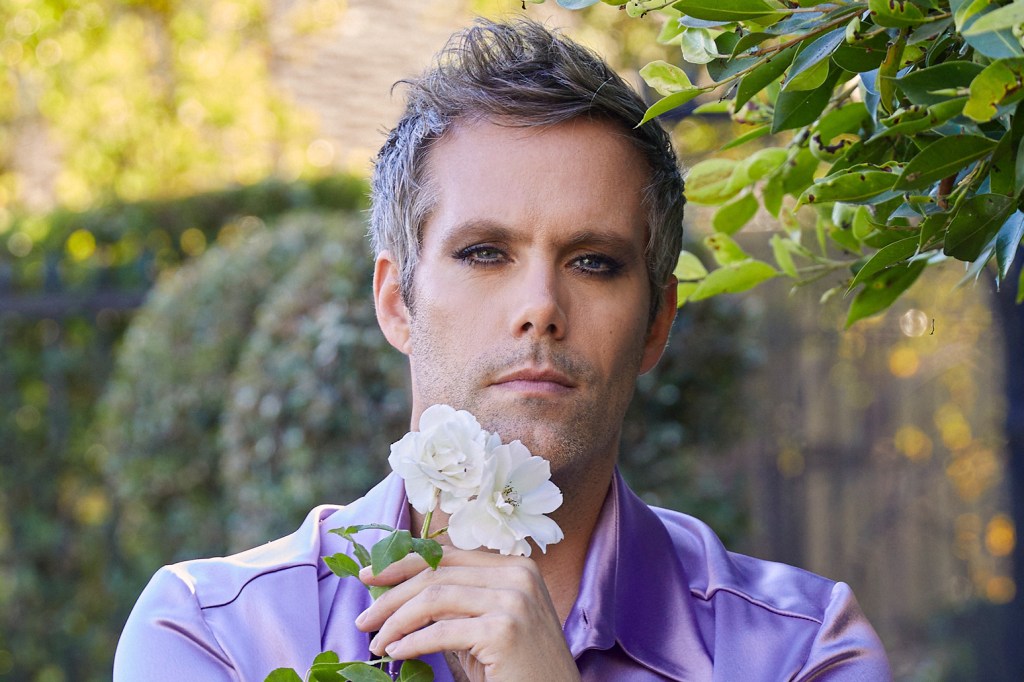
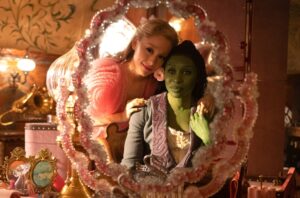
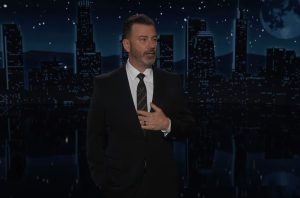
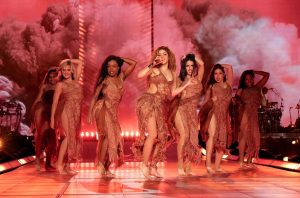
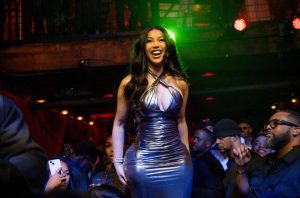
Comentarios